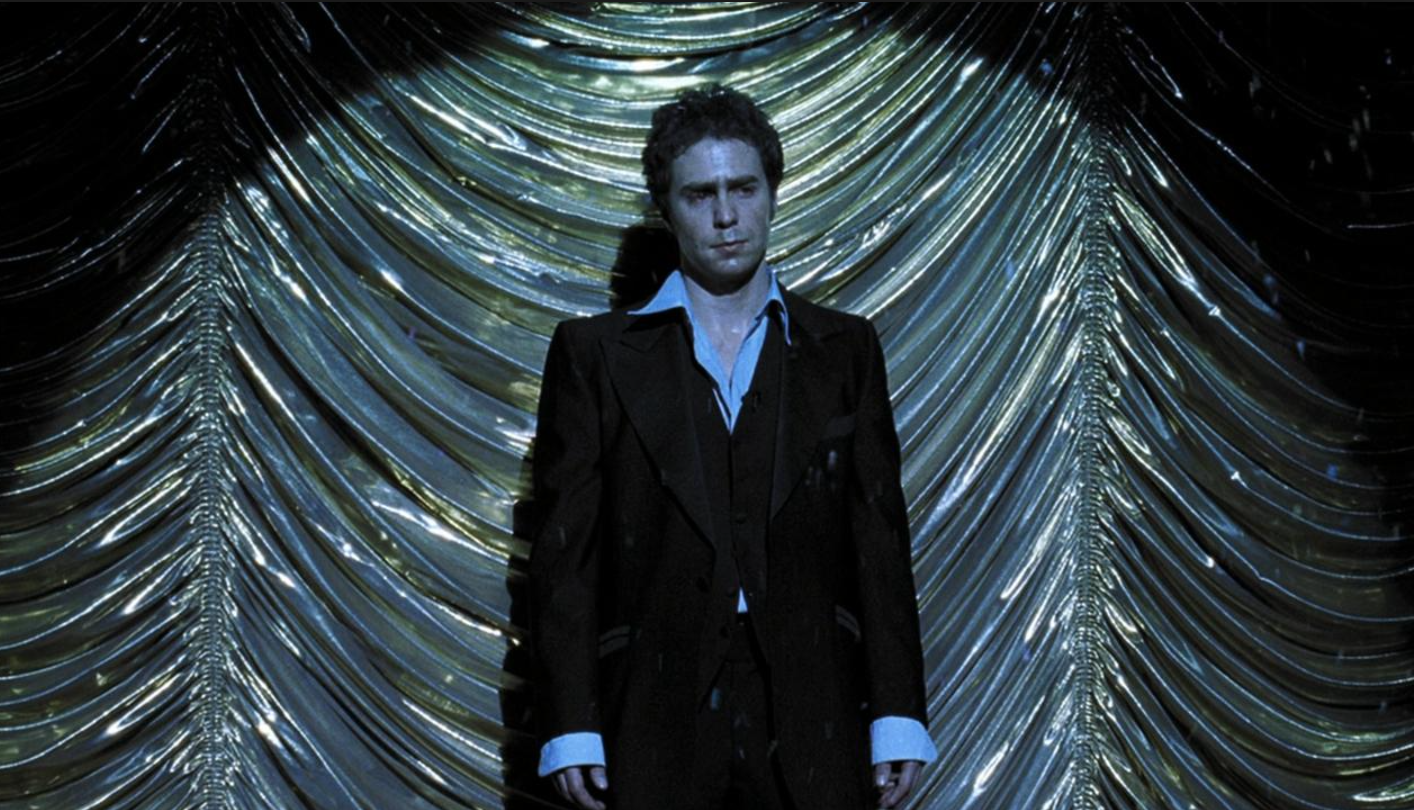At the time of its release in 2002, Confessions of a Dangerous Mind wasn’t exactly quite as appreciated on a mass scale as it could have been. Remember Bush was president, Abercrombie was in and anything “weird” wasn’t necessarily embraced with half as much gusto as it is now. Still, it gained notice for being George Clooney’s directorial debut and offering a heavy-hitting cast that consisted of Sam Rockwell, Julia Roberts and Drew Barrymore (not to mention lil’ cameos from Brad Pitt and Matt Damon). And then there was its screenplay author, Charlie Kaufman, riding high from the acclaim of Adaptation, released the same year.
Based on Barris’ autobiography of the same name, Clooney and Kaufman tell Philadelphia-born Barris’ story from a surreal, fraught perspective, in large part with the help of Barris himself (73 years old at the time), who consulted on the set. One can imagine the creative clashes that might have ensued with a strong personality like Barris’, but then again, Kaufman and Clooney seem to work best with the overpoweringly bizarre. Sam Rockwell gives Barris the determined aura he invariably must have possessed upon first moving to New York and becoming an NBC page (the original Kenneth from 30 Rock, if you will). Spurred to succeed by his constant rejection from women, his plans to become a presence in television are dashed when he’s fired. The only silver lining to moving back to Philly is that he finagles a position as Dick Clark’s assistant on American Bandstand. His romantic life improves after writing the Freddy Cannon song, “Palisades Park.” He soon meets Penny Pacino (Drew Barrymore) and becomes enamored of her, but these affections fall by the wayside when his pilot for The Dating Game is passed over (“We can’t have black men getting blow jobs on national television!,” screams one ABC executive once the show finally does make it on the air). With no other prospects, Barris goes to Mexico for a bender, where he’s approached by CIA operative Jim Byrd (Clooney) with an occupational proposition.
Taking him up on his offer to work as an assassin, Barris returns to New York when The Dating Game is finally greenlit by ABC. At this point, the film speaks to the continued puritanism of the U.S. in spite of the hippie and free love movement as Barris is forced to allow Mr. Jenks (Robert John Burke) of the FCC to speak with the contestants before the show, screaming, “The penalty for [any] disgusting, un-American behavior is one year in prison or a $10,000 fine or both! Anyone making a sick, subversive comment tonight will be arrested immediately.”
Undoubtedly, Barris’ iconoclasm and innovative brilliance are never more illuminated as they are in this most unusual of biopics. The narrow-mindedness he contended with to get his envelope-pushing content on the air makes one understand how he might have had a crack-up or two over the years. Obviously hyper-stylized (or is it?), this film was the closest Barris ever came to corroborating his claims that he actually worked for the CIA throughout the 1960s (though the CIA has always denied these assertions). Regardless of whether people thought him deranged or not, without him, who knows how tame American television could have been doomed to remain?
Though many feel Barris’ greatest legacy is comprised of the game shows he created, little auctioning block affairs of what it meant to pursue the American dream of monogamy that was vastly fledgling in the late 60s and 70s, it is really the cinematic masterpiece he inspired that makes his pop culture annuity so valuable.



















